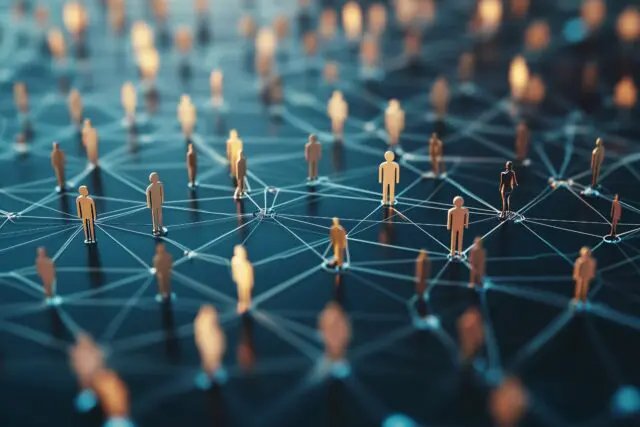
Workplace Culture and Employee Retention
July 21, 2020
8 unconscious biases that pollute your business
On July 14,Julie Tardif, CRHA et Noellie Dias, CRHAheld a webinar in partnership with Détail Québec which was a resounding success:Systemic discrimination, eliminate it from your HR processes. During this unique webinar, they addressed critical points concerning each aspect of business life.
One of the issues raised was the unconscious biases which insidiously insert themselves into decision-making processes and which thus perpetuate systemic discrimination.. An issue so relevant and delicate that it seemed essential to us to make you aware of this subject.
First of all, what does“unconscious bias» ? These are learned beliefs whose results are thoughts or actions that disadvantage or exclude an individual from a group. Our thoughts are influenced by our biases, our affinities, stereotypes, cultural biases and prejudices. These implicit biases work in favor of a certain type of individual and against others.
Discover the 8 unconscious biases that influence the quality of your decision-making:
-
The Halo Effect: the positive or negative opinion towards a person in a given area and which influences our judgment about their skills in all other areas.
-
The Error of Extremes : the tendency to place individuals in either one extreme or the other, leading to a very positive or very negative evaluation.
-
Centrism : the discomfort of evaluating an employee honestly and therefore assigning an average rating rather than an actual result.
-
The Primacy Effect : focusing your evaluation on our first impression without examining behavior over the entire evaluation period.
-
The Recency Effect : the tendency to judge on the very last event, or the last impression left, without examining performance or behavior over the entire evaluation period.
-
The Mirror Effect : assigning more favorable ratings to people we consider similar to ourselves than to people who are different.
-
The Similarity Effect : the tendency to evaluate more positively people with whom we get along well, with whom we have affinities and with whom our customers and our employees could get along well.
-
The Contrast Effect (or overflow) : the fact that we evaluate a person by comparing them to another.
These unconscious biases often seem very intangible and furtive. Therefore, to passfrom a performance approach to a transformation approach, you will need to concretely equip your managers to train them on effective decision-making and best management practices;
Contact usto watch the webinarSystemic discrimination, eliminate it from your HR processesand sustainably dismantle these dynamics within your company.

Julie Tardif, CPHR
Chief Commercial Officer, Co‑Founder & Partner
Speaker & Certified Trainer
Human Resources Consultant
Advice Centre
Discover more inspiring content
Find out how our methodology has transformed companies from different sectors. Each article is proof of our expertise.

Strategy & Organizational Performance
#Covid19 and Flexible Measures: an entrepreneur’s point of view
Yannick Baril, VP Finance at Enviroair, has implemented flexible measures to adapt to the pandemic, improve quality of life and productivity.

Workplace Culture and Employee Retention
Systemic Discrimination at Work: From Performative to Transformative (Part Two)
Recognizing systemic discrimination is essential. Acting transformative rather than performative is key. Implement concrete actions.

Workplace Culture and Employee Retention
Recognizing systemic discrimination at work (Part One)
Diversity is essential to the good performance of your team. Systemic discrimination in the workplace must be recognized and addressed.

Workplace Culture and Employee Retention
Good teleworking practices? Order your governance guide!
Teleworking is here to stay. A governance guide is essential to effectively manage this new way of working.

Workplace Culture and Employee Retention
Combining Performance and Well-being: are you ready?
Performance appraisal raises concerns. Innovative practices linking performance and well-being are emerging to respond to this.

Performance Management & Discipline, Workplace Culture and Employee Retention
Return to work: Managing employee requests
Returning to work is a delicate subject as businesses reopen. It is important to consider employee concerns and ensure a safe work environment.

Workplace Culture and Employee Retention
Return to work: what about mental health, have you talked about it?
The economic recovery allows the resumption of activities, with significant emotional impacts. Welcoming employees in this context is essential.

Employee Coaching & Training, Strategy & Organizational Performance
PACME: How do I choose my training?
Need pacme training? Take stock of your needs to choose between training, facilitation and professional coaching. Contact us!

Strategy & Organizational Performance
#COVID19: How did our consultants experience the crisis?
In troubled times, our consultants have proven themselves indispensable to our clients. They supported the firm and its staffing.

Strategy & Organizational Performance
Economic recovery: The 4 stages of your recovery plan
Businesses must prepare for crises. Create a recovery plan for the sustainability of the company and its staff.

Strategy & Organizational Performance
#COVID19: 10 commandments for crisis management
The time of crisis is the perfect opportunity to strengthen your business through team building and proactive management actions.

Employee Coaching & Training, Strategy & Organizational Performance
Coaching as a vector of performance
Médina Cayer, certified NLP coach, is a reference in professional coaching in Montreal. His expertise helps managers optimize their performance.